1999 Toyota 4Runner Tires & Services
Get Started
Complete Auto Care for Your 1999 Toyota 4Runner
-
TIRES FOR YOUR 1999 Toyota 4Runner View Tire Info GET TIRE PRICING
-
REPAIR FOR YOUR 1999 Toyota 4Runner View Repair Info SCHEDULE REPAIR
-
MAINTENANCE FOR YOUR 1999 Toyota 4Runner View Maintenance Info SCHEDULE MAINTENANCE
-
OFFERS FOR YOUR 1999 Toyota 4Runner Limited Time Tire Offers VIEW ALL COUPONS
1999 Toyota 4Runner Tires
Recommended Tires | Tire Information
1999 Toyota 4Runner Tires Sizes, Speed Ratings, and Inflation
Not sure about your 1999 Toyota 4Runner tire size? Use the following chart to find information on tire size, speed rating, and inflation.
| Trim Level | Speed Rating | Inflation in PSI F/R | Tire Size |
|---|---|---|---|
| 1999 Toyota 4Runner Base* | S | 32 PSI/32 PSI | P265/70R16 |
| 1999 Toyota 4Runner Base* | S | 29 PSI/29 PSI | P225/75R15 |
| 1999 Toyota 4Runner SR5* | S | 29 PSI/29 PSI | P225/75R15 |
| 1999 Toyota 4Runner SR5* | S | 32 PSI/32 PSI | P265/70R16 |
| 1999 Toyota 4Runner Limited* | S | 32 PSI/32 PSI | P265/70R16 |
| 1999 Toyota 4Runner Limited* | S | 29 PSI/29 PSI | P225/75R15 |
|
1999 Toyota 4Runner Base* Speed Rating: S Inflation F/R: 32 PSI/32 PSI |
|
1999 Toyota 4Runner Base* Speed Rating: S Inflation F/R: 29 PSI/29 PSI |
|
1999 Toyota 4Runner SR5* Speed Rating: S Inflation F/R: 29 PSI/29 PSI |
|
1999 Toyota 4Runner SR5* Speed Rating: S Inflation F/R: 32 PSI/32 PSI |
|
1999 Toyota 4Runner Limited* Speed Rating: S Inflation F/R: 32 PSI/32 PSI |
|
1999 Toyota 4Runner Limited* Speed Rating: S Inflation F/R: 29 PSI/29 PSI |
* Note: these models have different tire sizes depending on vehicle options.
Recommended Tires for Your 1999 Toyota 4Runner
What tires are best for a 1999 Toyota 4Runner? Check out the following tire brands and types.
 ALENZA AS ULTRA
ALENZA AS ULTRA
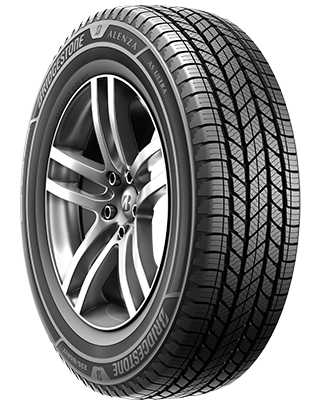
- No warranty
- All-Season
- Light Truck Tires
 Blizzak DM-V2
Blizzak DM-V2
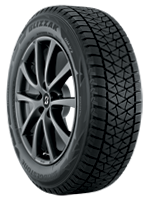
- No warranty
- Winter
- Winter
 Dueler A/T Revo 3
Dueler A/T Revo 3
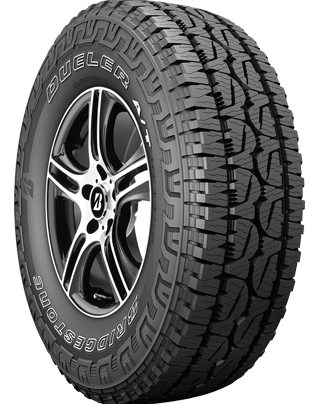
- Platinum Pact Limited Warranty
- All-Season
- Light Truck Tires
 Destination LE3
Destination LE3
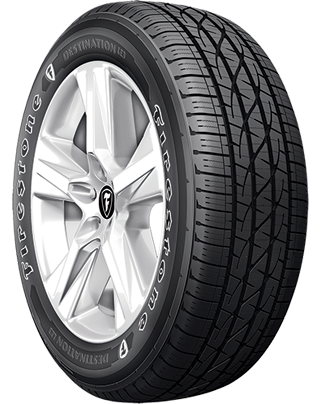
- No warranty
- All-Season
- Light Truck Tires
 Destination A/T2
Destination A/T2
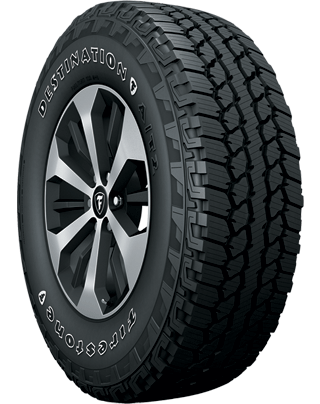
- Gold Pledge Limited Warranty
- All-Season
- Light Truck Tires
 Winterforce 2 UV
Winterforce 2 UV
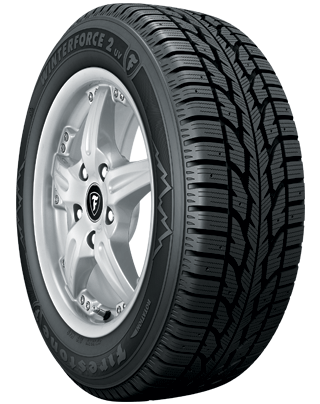
- No warranty
- Winter
- Winter

- No warranty
- All-Season
- Passenger Tires
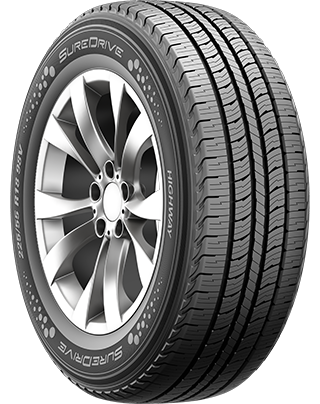
- No warranty
- All-Season
- Light Truck Tires
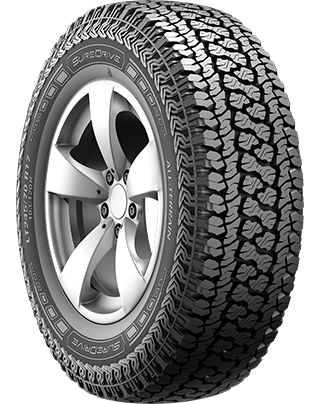
- No warranty
- All-Season
- Light Truck Tires
 Extensa A/S II
Extensa A/S II

- No warranty
- All-Season
- Passenger Tires
 OPEN COUNTRY A/T III
OPEN COUNTRY A/T III
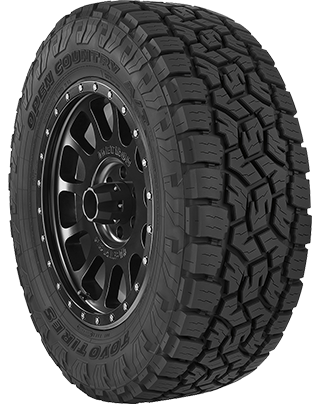
- No warranty
- All-Season
- Light Truck Tires
1999 Toyota 4Runner Tire Information
Beyond the correct tire size, you also want to consider a handful of other factors when buying new Toyota 4Runner tires like how and where you drive, and how much you want to spend. When evaluating your driving conditions, think about where you live (countryside vs. city vs. mountains) and the kind of unexpected weather you're likely to experience. Drivers in states that fully experience all four seasons often buy two sets of tires: one set for winter, one set for summer. Other drivers prefer the convenience of all-season tires. They make one trip to the tire shop and they're pretty much ready for rain, light snow, or sun!
Your personal driving style is the next factor to consider. If you're a big off-roading fan who forges paths where others can't, you have very different needs than a long-distance commuter who sticks to the highway. Visit your local Firestone Complete Auto Care for help selecting the tire that's right for you, or get started by browsing tires that fit your Toyota 4Runner.
1999 Toyota 4Runner Tire Installation & Rotation
Firestone Complete Auto Care has been a leading tire provider for more than a century. We're your one-stop shop for tire installation, rotation, and ongoing maintenance! Buy 1999 Toyota 4Runner tires online and schedule your installation when it's convenient for you.
Questions About 1999 Toyota 4Runner Tires
-
Is Toyota tire inflation important? The right tire pressure can make all the difference. Proper tire inflation helps increase fuel economy, improve braking time, and boost tire lifespan! Even a small change in tire pressure can impact your driving.
-
What do the tire sidewall numbers mean for my Toyota 4Runner? Your tire sidewall numbers tell you the recommended load carrying capacity, speed rating, treadwear, traction, and tire size. Talk to a tire technician to learn how to read Toyota tire numbers.
-
Can I check the tread depth on my Toyota tires at home? Stay on top of your tire tread depth to help avoid a dangerous drive. You can check tread depth with a penny. Hold the penny so that Abraham Lincoln is facing you, then place your penny into a tread groove upside down. If you can see the top of Abe’s head, your tread is shallow and it might be time for new Toyota 4Runner tires. Grab a penny. Hold the so that Abe Lincon's head is facing you and his hair is pointing toward the ground. Then, place the penny into a tread groove. If you can see the top of Abe’s head, your tread is shallow and it might be time for new Toyota 4Runner tires.
1999 Toyota 4Runner Repair
When to repair, when to replace? Click on a repair below to learn more about Toyota 4Runner repairs at Firestone Complete Auto Care.
About 1999 Toyota 4Runner Repairs
No driver looks forward to car repairs. But at Firestone Complete Auto Care, we strive to give you the excellent repair experience you deserve. Bring your 1999 Toyota 4Runner in for repair services and our technicians will take care of your 4Runner like it was their own. We'll work to evaluate the scope of repairs needed and explain your options. We’ll never recommend a repair we don’t think is necessary for your safety or the performance of your Toyota.
What Will Toyota 4Runner Repairs Cost?
The cost to repair your 1999 Toyota 4Runner depends on which repairs are needed, costs of replacement parts or repair supplies, the amount of labor necessary to get the job done, and where you live. But regardless of where you’re located, check out our website for repair coupons and offers that could save you some cash.
A few different aspects can influence repair costs for your 1999 Toyota 4Runner, like
Questions About 1999 Toyota 4Runner Auto Repairs
-
Do I still need scheduled maintenance even when nothing is wrong with my Toyota? The cheapest 1999 Toyota 4Runner repair is the one that isn’t necessary in the first place! Staying up-to-date with your car’s scheduled maintenance services is a great way to keep future repair costs low.
-
What's wrong if something feels 'off' in my Toyota? No, we’re not talking about finding the best jams on the radio! You know your car best, and you’re the first person who will notice if something doesn’t feel right (like new smells, sights, or sounds coming from your car). If you sense that something is 'off,' stop in for a Courtesy Check to have these symptoms checked out ASAP. Early action could help you prevent Toyota 4Runner repairs.
-
Are the repairs you recommend for my Toyota actually needed? We won’t recommend a service or repair for your 1999 Toyota 4Runner unless we think it’s necessary to keep you safe. Want to know more about a specific recommended repair? Ask! We’re here to help.
Brake Repair for Your 1999 Toyota 4Runner
Your Toyota 4Runner may be powered by a strong engine. But if you can’t stop it, it’s as good as scrap metal. If you’re experiencing squeaky brakes or a loss of braking power, don’t wait! Safe driving is difficult when your brakes are anything but their best. What's more, waiting for things to figure themselves out can result in more damage to your brakes and your wallet. Go to your local Firestone Complete Auto Care for 1999 Toyota 4Runner brake repairs. Our brake repair services include brake pad/shoe replacement, brake rotor/drum resurfacing, brake fluid exchange, and brake caliper and wheel cylinder installation.
Toyota 4Runner Brakes Frequently Asked Questions
-
What can cause my 4Runner to shake when I apply the brakes? If your 4Runner shakes when you brake, you could be dealing with warped rotors, faulty brake calipers, worn brake pads or rotors, or loose or worn suspension parts. Schedule a free brake inspection at Firestone Complete Auto Care for help diagnosing your brake issue.
-
How long should my 4Runner brake pads last? Brake pads typically last about 30,000 to 40,000 miles. However, driving conditions can affect this range. Sticking to highway driving and braking smoothly can help extend the life of your brake pads, while towing heavy loads or frequently riding your brakes can shorten it.
-
Can brake fluid leak when my 4Runner is off? Your 4Runner brake system is a closed hydraulic system, which means that the brake fluid should not leak out of the system under normal circumstances. However, over time, the various components of the brake system can wear out or become damaged, which can cause brake fluid to leak out of the system.
1999 Toyota 4Runner Drivetrain Repairs
Drivetrains for front, rear, and all-wheel-drive and 4WD vehicles are not all the same. You don't want to go to any random shop for drivetrain repair. You want to come see the technicians at Firestone Complete Auto Care. We can fix many 1999 Toyota 4Runner drivetrain components Your Toyota 4Runner may need driveshaft attention if you feel resistance when turning, heavy vibrations in your floorboards, clunks when shifting, or vibration as your vehicle accelerates.
1999 Toyota 4Runner Drivetrain Q&A
-
How do I know if my Toyota drivetrain is damaged? Your Toyota 4Runner drivetrain might be damaged if you notice strange noises from the rear of your vehicle, see fluid leaking, or have issues turning.
-
What causes a 4Runner’s malfunction indicator light (MIL) to illuminate? Engine problems, transmission problems, faulty sensors, electrical issues, misfire issues, and connector problems could all cause your 4Runner’s malfunction warning light, or better known as the check engine light, to illuminate.
-
How concerning is a drivetrain malfunction in my 4Runner? A drivetrain malfunction in your 4Runner should never be taken lightly. Driving with a malfunctioning drivetrain can put you in danger and lead to further vehicle damage, so it's essential to have a qualified mechanic assess and repair the problem as soon as possible.
Wheel Alignment for 1999 Toyota 4Runner
With an alignment service, adjustments are made to your Toyota 4Runner’s suspension system, which serves to attach your wheels to your vehicle. During the service, your tire angles are adjusted according to measurements recommended by Toyota. Why? So that your tires can make contact with the road at the best possible angle. When you bring in your 1999 Toyota 4Runner, we’ll perform an alignment check first. Then, we’ll adjust the angles as needed until they match recommended measurements from Toyota.
Questions About Toyota 4Runner Alignment
-
What can knock my Toyota 4Runner out of alignment? Potholes and uneven roads can knock your car out of alignment, so stay aware of the road ahead and adjust your speed (or avoid these obstacles whenever it’s safely possible).
-
How often does your 4Runner need a wheel alignment? Check your 4Runner owner's manual for Toyota's recommended interval. It's generally a good idea to check your alignment every 6,000 miles or 6 months, depending on which comes first.
-
Do you need to get your 4Runner wheels aligned when you get new tires? While you don’t necessarily need to get an alignment when putting new tires on your 4Runner, it’s still a good idea. Ensuring your wheels are properly aligned can help support optimal handling, tire wear, and fuel efficiency.
1999 Toyota 4Runner Engine Repair
If your 1999 Toyota 4Runner needs engine repair, our expert techs will let you know what needs to be done and why before they get started. We make recommendations, but you make the final decision. If a service can wait, we’ll make sure you know. If it's necessary for your safety, we'll make sure you understand that, too. We seek to give you all the info you need to make a smart decision about our services. Choose Firestone Complete Auto Care for Toyota 4Runner engine repairs and you can drive easy knowing that we use Toyota-approved parts and fluids — serpentine belt, valve guide seal, fuses, or another part.
Questions About 1999 Toyota 4Runner Engines
-
Why does the check engine light come on when I start my 4Runner? Generally, your check engine light turning on upon ignition is not a bad thing. It’s just your 4Runner firing up its circuits. The light should turn off in a bit, but come see us if it doesn't.
-
Why does my Toyota engine sound different? Strange under-the-hood noises can point to problems within your Toyota 4Runner engine. Tapping or knocking could mean you need an oil change. Whistling sounds could mean you have an intake leak or misaligned belt. Squealing may be caused by a loose fan belt, and grinding could be a sign that something is wrong with your brakes — not the engine.
-
Are you unknowingly damaging your Toyota 4Runner engine? Certain driving habits can hurt your engine. These habits include driving on an empty fuel tank, revving your engine while the vehicle is in Park, or slamming the gas pedal while the engine is still cold. Steer clear of these habits to help protect engine performance and efficiency.
Tire Repair for Your 1999 Toyota 4Runner
If the road has been rough on your 1999 Toyota 4Runner tires, Firestone Complete Auto Care can help. Our tire technicians can determine whether it's safe to plug and patch the tire, or whether it needs to be replaced. To start, we’ll consider the location of tire damage, the type of issue, the size and scope of the damage, and the amount of wear on your tires.
If a repair on your 1999 Toyota 4Runner tire is feasible and safe, the repair process is actually fairly simple: (1) Take the tire off the wheel for easy inspection, (2) fill in the area that’s been punctured to prevent damage from moisture, and (3) secure and seal the inner tire liner to ensure the tire is airtight.
Your Questions About Toyota 4Runner Tire Repair, Answered
-
What happens if I drive my Toyota on a flat tire? Driving on a flat tire is not a good idea. Your 4Runner engine will keep running with a flat tire, but you could damage your wheel by continuing to drive on a flat.
-
Will a temporary sealant fix my Toyota's flat tire? Temporary sealants will solve your problem… for a little bit. If you’ve seen temporary or emergency tire sealant before (it usually comes in a can), it can be tempting to turn to this as a solution for your flat tire. Keep in mind that these fixes could buy you some time to get to Firestone Complete Auto Care for a proper repair, but they could also cause some harm in the process (for example, damage to your TPMS). Plus, using a product like this could void your tire warranty.
-
Why do my 4Runner tires keep losing air? Tire punctures, damaged wheels, and leaking valve stems are possible reasons for your 4Runner tires continuously losing air.
Maintenance for Your 1999 Toyota 4Runner
You want your Toyota 4Runner to last as long as possible. If you put in the effort to keep up with proper maintenance, you could hit 200,000 miles (or beyond!) in your 4Runner.
Guide to 1999 Toyota 4Runner Scheduled Maintenance
There's no need to guess when it's time to get 4Runner maintenance, and no need to wait until something goes wrong. Just follow your 1999 Toyota 4Runner maintenance schedule! Toyota knows your vehicle inside and out (they made it, after all!), so they’ve designed this schedule with your car’s unique needs in mind. Scheduled maintenance services can vary depending on driving conditions, climate, and other factors; however, there’s a good chance that your vehicle’s recommended maintenance services will include oil changes, tire rotations, brake pad replacement, filter changes, and fluid checks and exchanges. Scheduling routine service appointments is one of the best ways to help extend your 4Runner's life, increase your vehicle safety, and prevent common 1999 Toyota 4Runner problems.
Learn About Vital Maintenance Needs for Your Toyota 4Runner
Bring your 1999 Toyota 4Runner to Firestone Complete Auto Care for factory-recommended maintenance services and a skilled technician will start the appointment with a Courtesy Check. A Courtesy Check helps "set the stage" for your service and catch any small problems before they turn into big repairs. Every Courtesy Check will include a visual inspection of your 4Runner. We’ll check your head and tail lights, fluid levels, filters, tires (and their alignment!), and windshield wiper blades. We’ll also perform a free battery check to determine your battery’s charge level.
Firestone Complete Auto Care is your one-stop shop for 1999 Toyota 4Runner maintenance and repairs. So visit us regularly, or visit us urgently. Many locations are open on weekends and in the evening.
1999 Toyota 4Runner Maintenance Q&A
-
What do I do if I hit a pothole in my Toyota 4Runner? Check your car for pothole damage! If you’ve recently hit a pothole (or even if you don’t remember hitting one… they can be sneaky!) check your tire treads, tire sidewalls, and wheels for damage. Potholes can also knock your car out of alignment, so have your alignment checked if you suspect you’ve driven over a rough patch of road lately.
-
When does my Toyota 4Runner need high mileage oil? If your Toyota 4Runner has ticked past 75,000 miles, consider switching to high mileage oil at your next oil change to give your engine what it needs to go another 75,000 (or more!). High mileage oil: make it a high priority!
-
Why are my Toyota dashboard lights on? It's better to get them addressed as soon as possible. An illuminated dashboard light means something in your vehicle isn't functioning like it should. Letting problems linger can mean bad news for your Toyota 4Runner, so be sure to take your car in for service as soon as you notice an illuminated dashboard light.
Battery Size & Replacement for 1999 Toyota 4Runner
Need more info about Toyota 4Runner batteries?
| Battery | Engine | Warranty | Cold Cranking Amps | |
|---|---|---|---|---|
| 24F-3 | L4/2.7L | Replacement 24 months | Performance months | 650 |
| 24F-6 | L4/2.7L | Replacement 36 months | Performance months | 750 |
| 24F-RP | L4/2.7L | Replacement 48 months | Performance months | 750 |
| 24F-3 | V6/3.4L | Replacement 24 months | Performance months | 650 |
| 35-2 | V6/3.4L | Replacement 36 months | Performance months | 640 |
| 24F-RP | V6/3.4L | Replacement 48 months | Performance months | 750 |
1999 Toyota 4Runner Car Batteries
Generally, car batteries last from three to five years. You want to replace your 1999 Toyota 4Runner battery before it fails and leaves you stranded. Look out for symptoms of a faulty car battery. A sluggish engine start, an illuminated battery or check engine light, bloated battery case, corroded battery posts, and subpar electrical performance may all indicate that your battery is on its last leg.
Plus, at Firestone Complete Auto Care, we’ll test your battery for free. Drop in for a free battery check and, if necessary, a battery replacement to help keep your 1999 Toyota 4Runner running! Car batteries are one of our many specialties! Our technicians are familiar with Toyota-specific recommendations for 4Runner car batteries’ reserve capacities and cold cranking amps. Get help figuring out the battery size that fits your car perfectly, and schedule an appointment today for a quick car battery replacement.
Answers to Your Toyota 4Runner Car Battery Questions
-
Why doesn’t my Toyota 4Runner battery stay charged? A battery is in its final hour when it will no longer hold a charge. The battery may be too old. Or, you may have been leaving your car doors ajar and the cabin light at night. Stop by for a complimentary battery check at your favorite Firestone Complete Auto Care and get a handle on your car battery’s health.
-
How long do car batteries last? The typical 12-volt car battery may last three to five years, depending on the type of battery, the driving conditions, and how well the battery is maintained.
-
Why is there white, crusty buildup on my 4Runner’s battery post? The white, crusty stuff that can accumulate around 4Runner car battery terminals is called corrosion. It is caused by a chemical reaction between the battery acid and the air, which creates a white, powdery substance that can build up on the terminals over time. Corrosion can interfere with the flow of electricity between the battery post and the car's electrical system, sometimes leading to poor electrical performance, difficulty starting, and even premature battery failure.
Oil Changes for 1999 Toyota 4Runner
Toyota recommends having your 1999 Toyota 4Runner’s motor oil changed at regular intervals. Your 4Runner may need an oil change right away if your check engine/oil change light is on, you hear engine knocking, sense an oil smell in the cabin, or see an excess amount of vehicle exhaust. You may also need an oil change more frequently than Toyota recommends if you haul heavy loads, drive in dusty areas, adventure off-road, or drive at low speeds for long distances.
Whether you need high mileage oil, synthetic oil, or conventional oil, you'll find the right 1999 Toyota 4Runner motor oil at Firestone Complete Auto Care. Check your owner's manual and talk with a technician to select the right Toyota 4Runner oil, whether it's Quaker State® Advanced Durability™ conventional oil, Pennzoil® High Mileage Vehicle® motor oil, Pennzoil Platinum® Full Synthetic motor oil with PurePlus™ Technology, or Shell Rotella® heavy-duty engine oil. During your oil change service, a technician will change your 4Runner's oil, replace and recycle your used oil and oil filter, inspect all of your other filters, top-off essential fluids, and perform a courtesy inspection on your entire vehicle. Get professional engine care by making an oil change appointment for your 4Runner today.
1999 Toyota 4Runner Oil Change Q&A
-
What does it mean if my Toyota 4Runner oil light comes on? Your Toyota 4Runner oil change reminder light might illuminate if it’s been too long since your last oil change. On the other hand, the oil pressure light might illuminate due to a clogged oil filter, a faulty oil pressure sensor, low engine oil levels, or a malfunctioning oil pump.
-
How hard is it to change Toyota 4Runner oil at home? Changing your own oil isn't as convenient as you might think. It requires special tools and old oil must be disposed of properly. Having your oil professionally changed reduces the chances of something going wrong with the oil change, but also with your vehicle down the road.
-
Why is my Toyota exhaust smoke gray or blue? You could have an oil leak and have a case of burning oil. Looks like it’s time for a professional to take a look. The leak could be the result of worn valve seals, fried piston rings, or old cylinder walls.
Engine Tune-Up Service for Your 1999 Toyota 4Runner
Regular engine tune-ups can optimize your 4Runner’s power on the road. Your local Firestone Complete Auto Care offers a range of engine tune-up services for your 1999 Toyota 4Runner. One option is the standard Firestone Tune-Up. It includes a complete visual inspection of engine components, installation of new spark plugs, and a lifetime warranty on parts*. Another service option pays special attention to the filters in your 4Runner. Specifically, we replace the fuel filter and air filter. The third tune-up option is a fuel system cleaning service, which is a three-step process that removes varnish, dirt, and carbon deposits on your 4Runner's fuel injectors, throttle body, and throttle plate. The result? Restored fuel system performance. Consider this when choosing a tune-up service for your 4Runner: your vehicle’s maintenance record and mileage can determine which service is best. Ask one of our technicians what your vehicle needs, based on your driving habits and your car’s current condition.
*Check with a teammate at Firestone Complete Auto Care for complete terms and conditions regarding warranties.
Questions About 1999 Toyota 4Runner Engine Tune-Ups
-
Will it hurt my Toyota 4Runner to drive with old spark plugs? Replace spark plugs on time or about every 30,000 miles or so. Spark plugs are small but mighty. The spark of electricity that the plug emits across a small gap creates the ignition for the combustion needed to start your car. Without that spark, your car won't start.
-
What do I do if I see a pool of liquid under my Toyota 4Runner? Puddles could indicate an oil leak, coolant leak, or brake fluid leak– all of which can critically hurt your engine. Have your engine inspected as soon as you spot a pool of liquid in your usual parking spot.
-
How often do Toyota 4Runner fuel injectors need to be cleaned? Factors like fuel type and driving conditions can affect how frequently you need to clean your 4Runner fuel injectors. Some manufacturers recommend a fuel system cleaning as part of routine maintenance, or as needed if your vehicle is showing signs of poor fuel system performance.
1999 Toyota 4Runner Suspension Service & Repair
When you first bought your 1999 Toyota 4Runner, you probably enjoyed a smooth and steady ride. But these days, things are starting to feel a bit rough. Perhaps your 4Runner feels bouncy, drifts to one side, or makes an unusual noise when going over a speed bump. As soon as you notice that something’s “off” with your 1999 Toyota 4Runner, bring it in for steering and suspension services. We’ll get to the source of your car problems and, if steering and suspension service is needed, we'll explain all of your options and the potential cost.
1999 Toyota 4Runner Steering & Suspension Questions
-
What can cause my Toyota 4Runner to have a bouncy ride? If it feels like you’re on a trampoline every time your 4Runner goes over a bump or dip, you may have a problem with your struts or shocks. Faulty shocks and struts can’t properly absorb road bumps, leading to a bouncy ride.
-
What can cause the front end of my 4Runner to dip forward when I apply the brakes? The forward momentum and weight transfer to the front wheels during braking can cause your 4Runner's front end to dip forward. A damaged or faulty suspension system may fail to distribute the weight and force effectively, causing the front end to dip even more.
-
What role do tire pressure and tread depth play in my Toyota's suspension? Keeping your tires properly inflated can help reduce strain on the suspension, and also help you notice when you need new tires. A tire that doesn't have an adequate amount of tread can't grip the road or function as well as the manufacturer intended.
A/C Service for Your 1999 Toyota 4Runner
Our technicians will work to solve your 1999 Toyota 4Runner A/C problems to the best of their ability. In this A/C performance inspection, we’ll check out the current condition of your 1999 Toyota 4Runner A/C system to see if repair work is required. This check will include an examination of system pressure, a visual inspection, and a leak test.
Let's say we repair your 1999 Toyota 4Runner A/C system. We will also perform an A/C evacuation and recharge. To do this, one of our technicians will remove the refrigerant in your A/C system (if there is even any left to remove). Then, they’ll use Toyota’s specifications to evacuate the system. Finally, we’ll recharge the A/C system with new refrigerant.
Frequently Asked Questions for 1999 Toyota 4Runner A/C Systems
-
What’s making my 4Runner A/C put out warm air? An A/C blowing hot air has several possible root causes. There could be an issue with your compressor clutch, a blown fuse, a leak, or a clog in the expansion valve.
-
What can cause an A/C system leak? To put it simply, age and moisture are some of the main causes of leaks in your A/C. Over time, rubber gaskets and seals can wear out, which pushes much-needed refrigerant out of your 4Runner’s A/C system — and lets outside moisture get in, which can take a toll on internal A/C components.
-
What is causing my 4Runner’s A/C to only work when the car is in motion? Damaged or worn components in your 4Runner’s electrical or air conditioning system can cause the A/C to only work when the car is moving. You may be dealing with low coolant or a faulty cooling fan.
Transmission Services for 1999 Toyota 4Runner
The transmission delivers power from the motor to your wheels so that you can drive at your desired speed. Because your transmission is responsible for converting the right amount of power into the right amount of speed, even the smallest transmission problems should be addressed right away. 1999 Toyota 4Runner transmission issues could include shifting delays, grinding or jumping during acceleration, the car shaking on the road, or a burning smell or whistling sounds coming from under the hood. If you don’t pay attention to Toyota 4Runner transmission trouble you might notice your fuel economy decrease or discover that your 4Runner’s not even driveable. Our technicians are trained to service 1999 Toyota 4Runner transmission systems according to vehicle manufacturer recommendations. Schedule an appointment at your local Firestone Complete Auto Care at the first sign of transmission problems to help diagnose, treat, and prevent major transmission issues.
1999 Toyota 4Runner Transmission Q&A
-
When should I have my 4Runner's transmission fluid checked or exchanged? Caring for your Toyota 4Runner’s transmission fluid is a great way to help it perform. About every 30,000 to 60,000 miles is a good timeframe for having your transmission fluid inspected and perhaps changed. Service intervals can vary depending on how you use your Toyota, so check with your technician first. Luckily, leaks and low fluid levels are easy to spot and inexpensive to fix.
-
Can transmission fluid leak from my Toyota 4Runner? Yes, your Toyota 4Runner can develop a transmission fluid leak. As your 4Runner ages, parts of the transmission system might wear out or break down, leading to a leak and possible transmission issues. Common causes of transmission fluid leaks include worn seals, a damaged transmission housing, a loose or cracked transmission pan, an overfilled transmission, or faulty transmission lines.
-
Should I avoid driving my Toyota 4Runner if there is a transmission fluid leak? Driving your 4Runner with a transmission fluid leak is highly discouraged. Transmission fluid is vital to the smooth operation of your transmission system, and a leak can put the entire system at risk. A transmission fluid leak may lead to decreased performance, overheating, and possibly even transmission failure.
Get a 1999 Toyota 4Runner Vehicle Inspection
Every service performed at Firestone Complete Auto Care includes a multi-point Courtesy Check. The technician will begin by testing your Toyota 4Runner's battery to see how much charge it has left – and determine if it may fail in the near future. The check will continue with a visual inspection of your Toyota 4Runner's lights, windshield wipers, filters, fluid levels, belts, hoses, tires, and alignment.
Every service performed at your nearest Firestone Complete Auto Care will include a Courtesy Check, but we also offer an in-depth Complete Vehicle Inspection for your 1999 Toyota 4Runner. A Complete Vehicle Inspection includes everything in a Courtesy Check, plus a hands-on examination of your exhaust system, steering and suspension, and brakes. With this inspection, we want to help you stay on top of any issues that may need immediate attention in order to prevent further damage.
In some cities or states, your local Firestone Complete Auto Care may be able to perform state-mandated inspections or safety tests on your vehicle. These inspections are governed by state automotive laws and may vary in different locations.
1999 Toyota 4Runner Vehicle Inspection Q and A
-
How do I know if my Toyota 4Runner needs a check-up? It needs a check-up if something feels 'off' to you, the driver. Your Toyota 4Runner could benefit from a Courtesy Check if it has any illuminated dashboard lights, you hear weird noises coming from any part, the engine doesn't start sometimes, or your vehicle pulls to one side.
-
Can you fix my 1999 Toyota 4Runner so it will pass a state inspection test? Did your vehicle fail a recent state inspection test? We can help. Come in for a checkup and we’ll diagnose the issue.
-
When is the best time to get a complete vehicle inspection for my Toyota 4Runner? The best time to get a complete vehicle inspection for your Toyota 4Runner is before going on a road trip for the peace of mind. Another great time is when something abnormal occurs, and you can't pinpoint the issue. You might notice new dashboard lights, hear strange noises from under the hood, or your steering wheel doesn't feel like it once did.
1999 Toyota 4Runner Radiator Repair & Service
Keeping up with regular radiator maintenance in your 1999 Toyota 4Runner is essential for long-term engine health. To keep your radiator functioning, Toyota recommends replacing your antifreeze or coolant at scheduled intervals but it’s also wise to keep an eye out for signs of a failing radiator. You could be on the verge of a radiator-induced engine breakdown if you see coolant leaks under your car, high engine temperatures, or a dashboard light that indicates low coolant.
If you bring your vehicle to Firestone Complete Auto Care, we start with a comprehensive inspection of your Toyota 4Runner’s cooling system. We then do a machine-powered radiator exchange, replenish flushed chemicals, sealants, and lubricants, and then pressure check for leaks. When it comes to radiator service and repair, your 1999 Toyota 4Runner is in good hands at Firestone Complete Auto Care.
Common Toyota 4Runner Radiator Questions
-
Why is the coolant light on my Toyota dashboard on? Your engine might be about to overheat. If your low coolant light is on, pull over in a safe area and wait for your engine temperature to go down. Once it’s safe to do so, bring your car to your nearest Firestone Complete Auto Care to have the coolant system inspected.
-
What is causing my 4Runner to overheat? If your Toyota 4Runner engine overheats, it could be because of a clogged radiator, a damaged thermostat, a faulty cooling fan, a malfunctioning water pump, or low coolant levels.
-
What can cause a 4Runner radiator to make boiling or rumbling sounds? Your 4Runner’s cooling system could contain air pockets or your radiator might be clogged. Another possibility is a faulty radiator cap, which is an easy fix!